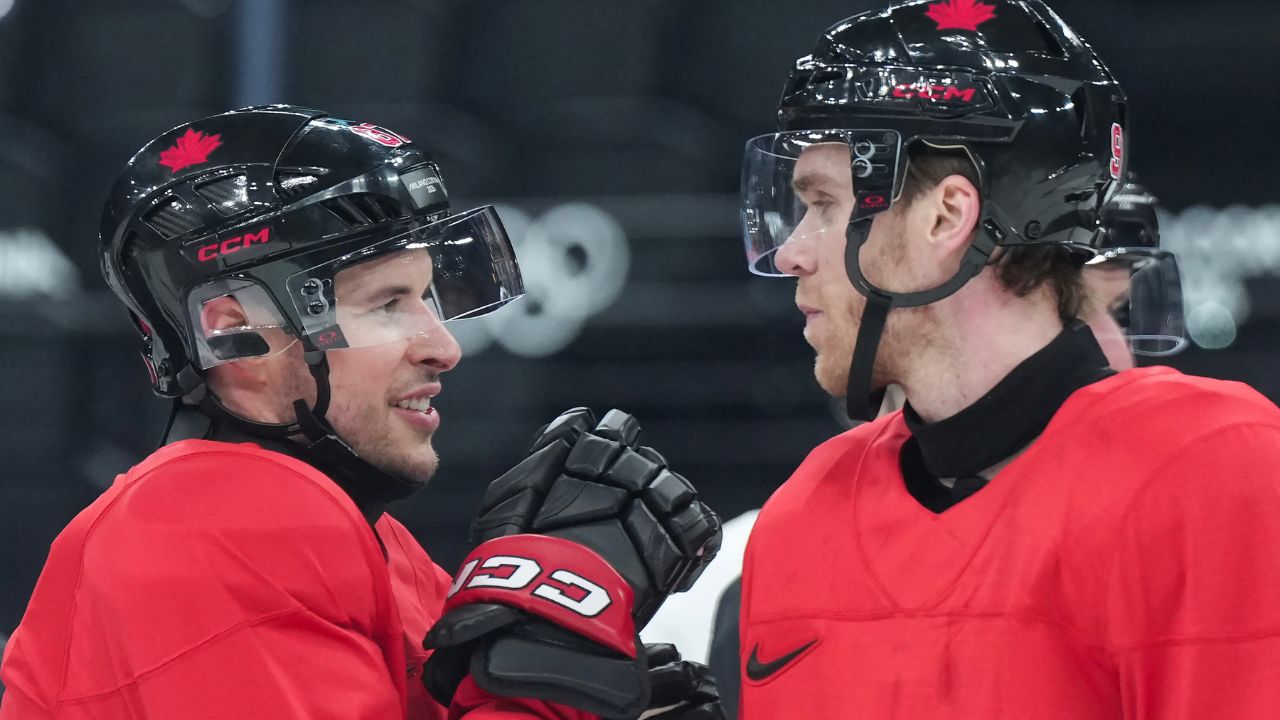
I have to be completely honest: As late as Thursday afternoon, I was having a difficult time envisioning the Toronto Maple Leafs extending their series with the Boston Bruins to a seventh game on Saturday.
With Auston Matthews remaining out of the lineup, the team struggling to produce on the power play and the fact the Leafs were riding a six-game losing streak on home ice in the playoffs, I wasn’t willing to spend my weekly paycheque betting on a Leafs victory.
But, here I am now, writing about some of my observations after the Leafs staved off elimination again with their 2-1 win over the Bruins in Toronto.
Here are some of my scouting notes from the game:
TORONTO
Several Leafs stood out to me for their level of sacrifice and determination. They have elevated their game as the series has progressed and are now displaying the best version of themselves:
• William Nylander goes about his business his own way. It’s difficult to wrap my mind around his approach at times, but when he’s “on,” there’s no doubt he’s one of the top game-breaking forwards in the NHL.
Nylander’s first goal was a stroke of luck, but he used his skating and elusiveness high in the Bruins end to create a shooting lane. Nylander is hard to check when shielding pucks or spinning off opponents, and once he directed the puck on net, he was lucky to see it deflect off Charlie McAvoy into the Bruins net.
His second goal was an elite finish on a clear-cut breakaway. He has the skill and patience to open up NHL goalies and casually slide pucks between their legs for tucks.
• Matthew Knies clocked in for 19:10 of ice time. His relentless compete, tracking up and down the ice the full 200 feet, stood out for me the entire game. Knies has the ability to produce secondary offence at this stage of his career. His overtime goal in Game 5 is an example, but it’s the heavy lifting and small details that stand out for me.
Goals have been hard to come by in this series, but Knies ranks second in Leafs scoring, with two goals and one assist. His goal stands out because it was an OT winner, but notice his assist in Nylander’s Game 6 winner. Knies absorbed contact in the neutral zone and pushed the puck to Nylander for the break. It’s a small example of how Knies can extend plays that lead to positive results.
The 21-year-old rookie has asserted himself and been credited with 22 hits in the series. His nine shot blocks lead the forward group.
• Simon Benoit isn’t the most fleet-of-foot NHL defender, but he’s big and rangy. Benoit’s “length” is an asset in that he uses it to keep opponents outside the dots and guide them to the perimeter and boards. He was credited with nine hits and four shot blocks in Game 6.
I had Benoit as a seventh, maybe eighth, defenceman on the Leafs roster in the fall, so I have to give him full credit for his character and perseverance. No matter what happens in Game 7, Benoit has provided exceptional value to the Leafs. He was paid only $775,000 this season and earned a three-year, $1.35 million (AAV) extension moving forward.
• A long-time Leafs season ticket holder, Al Hodgson, went out of his way to message me that Max Domi would be a thorn in the side of the Bruins and a difference-maker over the course of the series. Turns out he was right!
I have to admit I was less than impressed with Domi’s approach at the beginning of the series. He was too predictable while employing his strategy of attempting to distract Bruins players, especially Brad Marchand.
But in Matthews’ absence, Domi has played his best hockey. His speed is on full display, as is his tenacity tracking pucks and creating distraction. Domi leads the group offensively with one goal and three assists. Another impressive statistic is that he’s won 72 per cent of his face-offs in this series, although that success rate did drop to 54 per cent (still good!) in Game 6.
• Noah Gregor played only 8:21 in Game 6, but was effective in his role and played fast and physical. He was credited with six hits and would definitely be in my lineup for Game 7.
• Joseph Woll’s crease composure and positioning leads to pucks finding him in traffic. Woll is far less busy in the net than teammate Ilya Samsonov and much more predictable. Woll has no issues preparing for the big stage in the playoffs. No matter what happens in Game 7, Woll is the future full-time No. 1 goalie in Toronto’s net.
• In the spring of 2016, when I was scouting for the Florida Panthers, John Tavares took the New York Islanders on his back and led them to a six-game series win over our team. Tavares ended that playoff season with six goals and five assists in 11 games.
Tavares isn’t the same player he was in 2016, but an argument can be made he has played some of his best overall hockey for Toronto in the past two games. His net drive in Game 5 led to Knies’ game-winning goal and, in Game 6, Tavares dolled out seven hits and won 65 per cent of his faceoffs.
Tavares has scored only one goal and one assist in the series, but his 28 hits, 19 shots on goal and 58 per cent face-off wining percentage stand out as positives.
• If Mitch Marner isn’t producing offence, he needs to make sure he competes up and down the ice and contributes maximum detail defensively. Marner continues to run cold offensively, but his commitment to defence has improved over the course of the series.
It’s a small victory describing Marner this way, but beggars can’t be choosers at this time of year and Marner averages over 20 minutes of ice time, meaning he has to contribute positively in other areas besides offence.
• I don’t think David Kampf missed a shift after he was on the receiving end of a McAvoy hit in the second period. Kampf skated off with a bloody nose after sacrificing his face for the good of the group. A little bit of old-school hockey is still fun to watch.
BOSTON
• Boston goaltender Jeremy Swayman has posted a 1.60 goals-against average and .947 save percentage in five games. Any talk of the Bruins making a change in net is senseless, in my opinion. Swayman starts Game 7.
• David Pastrnak has to be much better for the Bruins if they are going to find a way past the Game 7 jinx this team has. The highlight of Pastrnak’s night, or should I say lowlight, was his four-minute high-sticking penalty on Leafs forward Tyler Bertuzzi. Otherwise, I had to look for Pastrnak. He had little to no impact on the game.
Pastrnak would be leading the Leafs in scoring. He contributed two goals and two assists in the first four games of the series, but was held pointless in Games 5 and 6.
• Playoff games are often won and lost on a bad break. McAvoy is averaging over 26 minutes of ice time per game for the Bruins. He’s a warrior who’s used in all situations, produces offensively (four assists) and hits people with enthusiasm (27 hits). The puck bounding off his knee into the Bruins net on Toronto’s first goal in Game 6 was the kind of bad break I’m describing.
• Boston was the better team in the back half of Game 6. I’m not sure why the group isn’t starting on time in the first half of games. Are the Bruins in their own heads? Are they tight or stressed? One thing’s certain, if they play a full 60 minutes the way they played their last 30 minutes in Game 6, the Leafs will have their hands full and Joseph Woll will have to be their best player in Game 7.
Note: Boston had one shot on goal at the halfway point of Game 6. The Bruins ended with 23 shots, directing twice as many shots on goal than Toronto in the second half of the game.
Special Teams
NHL referees would prefer everyone in the building doesn’t know their name at the end of a hockey game. It’s especially true in playoffs. The last thing the top officials in the world want to do is become part of the game. They prefer the battle to ensue between the teams and generally allow them to resolve the series on their own in Game 7s.
But a penalty, or two, is bound to be called on Saturday night. The special-teams battle is magnified in playoffs, and the Maple Leafs’ power play has been nothing short of a disaster in the series, going 1-for-20.
Of course, it’s important to give credit to the Bruins penalty killers. Boston has done a fantastic job of pressuring the Leafs, not allowing clean zone entries or any sort of sustained puck control in the Bruins end.
Sometimes, it’s best to simplify strategies to the bare bones. Toronto has the ability to get in on the forecheck with speed and tenacity. It’s never ideal to give up possession of the puck via dump-ins, or chips to areas that require winning a race to a puck, but the controlled entry the Leafs are trying to establish isn’t working.
Perhaps we are at the point where the Leafs need to dumb down their approach and attack with all five skaters, via chips and dumps and outnumbering the Bruins on the race to pucks. Once possession is gained, it might be best to get pucks to the net with traffic as soon as possible/crash the net, looking for tips and rebounds or a cheap bounce.
There’s a chance the Leafs might be one-and-done with this approach, but so far they have been “none and done,” for the most part. The way this series is being played, going 1-for-2 on the power play Saturday night could lead the Leafs to victory.







